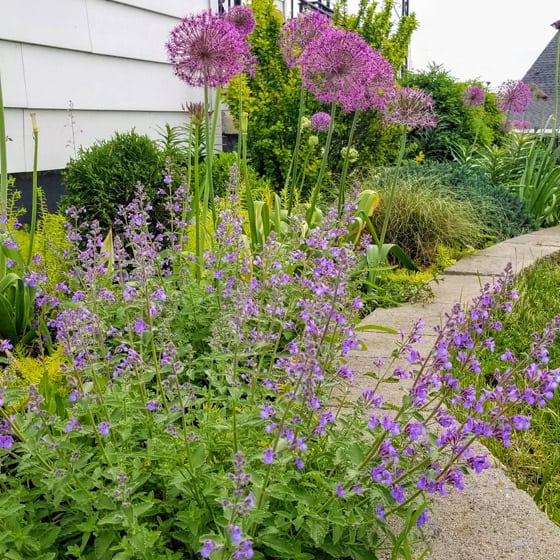
Organic gardening has many advantages, but you should be careful about what you do. First, follow seed packet instructions closely. To reduce weeds, plant plants together and then group them tightly for the best nutrients. Make sure you water well. Mornings are usually cooler and more windy. The average plant needs about 1 inch of water every week. Make sure to keep the soil moist and well-drained.
After you've established your compost pile, turn it regularly. Water will encourage microorganism activity, so make sure you add water to your pile. Once your compost pile is ready, start your garden. Once you have finished building your compost pile, you can start planting your crops. The next step will be to choose the right plant for your soil. Grow plants that are capable of enduring high temperatures and drying soil. These plants can thrive without the need for fertilizers or chemicals.

Pick the plants that best suit your soil type. You should, for instance, plant tomatoes in a sunny location. For them, a shaded spot is ideal. In general, organic gardens require less maintenance. To ensure that your organic gardens continue to grow, you need to be vigilant about pests and weeds. You may need to apply organically-certified mulch to your plants to protect them from disease and rot.
When gardening organically, it is important to choose the right plants. Make sure you plant seeds in the correct soil. If they are not in their native soil, it is time to invest in organic compost. Many organic gardens have a lot of humus. A soil test kit is recommended to determine if your soil has the right nutrients. The results will tell you if your soil lacks them or not. By putting different types of flowers together, you can check the health of your plants.
Using organic soil amendments is an essential part of gardening organically. Agricultural lime is an organic product that is extracted from limestone. It is added to soil in order to balance the pH. Agricultural lime is not used for fertilizing and is often not needed in organic gardens. The main advantage of organically grown plants is that they are free of chemicals. They are therefore able produce more oxygen as well as nutrients. This is why they're called "organic" because they have a higher nutrition value than conventionally-grown plants.

Organic pesticides can be used to protect your plants and kill pests. Organic pesticides are typically less toxic and more safe for your garden that synthetic pesticides. Organic control is a better option if you are looking for a solution that addresses the problem. However, it's important to follow label instructions carefully. Inorganic soil additions aren't harmful to the environment and may be beneficial for your plant.
FAQ
How long can I keep an indoor plant alive?
Indoor plants can live for many years. It is vital to repot your plants every few months in order to encourage new growth. Repotting is easy; simply remove the old soil and add fresh compost.
Do I need special equipment to grow vegetables in my garden?
It's not true. You only need a trowel, shovel, watering can, and a rake.
What is the best vegetable gardening layout?
Your location will determine the best layout for your vegetable garden. For easy harvesting, you can plant vegetables together if the area is large. However, if you live in a rural area, you should space out your plants for maximum yield.
Statistics
- As the price of fruit and vegetables is expected to rise by 8% after Brexit, the idea of growing your own is now better than ever. (countryliving.com)
- Today, 80 percent of all corn grown in North America is from GMO seed that is planted and sprayed with Roundup. - parkseed.com
- 80% of residents spent a lifetime as large-scale farmers (or working on farms) using many chemicals believed to be cancerous today. (acountrygirlslife.com)
- According to a survey from the National Gardening Association, upward of 18 million novice gardeners have picked up a shovel since 2020. (wsj.com)
External Links
How To
How do I keep weeds out of my vegetable garden?
Weeds are one of the biggest threats to growing healthy vegetables. They vie for water, nutrients sunlight and space. These tips will prevent them destroying your garden.
-
Take out all flowering plants
-
Take out any plant debris from the base of your plant
-
Use mulch
-
Regular water intake
-
Rotate crops
-
Do not allow the grass to grow.
-
Keep soil moist
-
Plant early
-
Harvest often
-
Mix compost
-
Avoid chemical pesticides
-
Plant organic vegetables
-
Buy heirloom seeds
-
Start small
-
Learn more about companion planting
-
Be patient
-
Enjoy gardening!